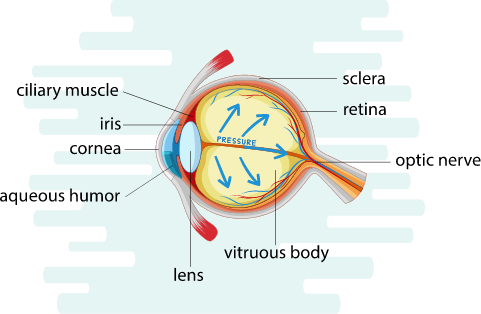How is glaucoma treated?
Glaucoma
Treatment options
Glaucoma is treated by lowering the pressure inside the eye with medication, laser, surgery, or a combination of glaucoma treatments. Because sight loss from glaucoma cannot be reversed, early detection and treatment is essential to prevent further vision loss.


medications
Glaucoma medications
Medications, typically eye drops, can be used to lower eye pressure. These medications work by reducing fluid production inside the eye or helping fluid drain from the eye. Glaucoma medications must be taken regularly each day to work effectively. Some patients may require more than one type of eye drop.
Side effects from glaucoma eye drops may include stinging, red eyes, eyelash growth, change in eye colour or appearance of skin around the eye, dry mouth, blurred vision, breathing problems, low pulse rate or blood pressure, and decreased energy or mood. If you are having side effects from medication you should tell your eye doctor. Your eye doctor may suggest changing to a different medication or an alternative treatment to reduce your need for eye drop medications.
It is important to tell your eye doctor about any medical conditions and what medications you are currently taking. It can be helpful to bring a list of your medications to your eye appointment.
procedures
Glaucoma laser procedures
Laser treatment uses light to help fluid drain from the eye or eliminate fluid blockage. Medications are used to numb the eye before treatment so there is usually little or no pain. Most lasers take only a few minutes to perform. The type of laser that is right for you depends on your type of glaucoma. Common types of laser include:
Laser trabeculoplasty
This low power laser is shone onto the mesh-like drainage channel to unclog it and help fluid drain more freely. It is typically used in open-angle glaucoma.
Laser iridotomy
A laser is used to create a small hole in the coloured part of the eye (iris) to prevent or treat the blockage of fluid in angle closure.
Laser iridoplasty
The laser is used to stretch the peripheral coloured part of the eye (iris) to pull it away from the mesh-like drainage channel in angle closure.
Diode laser
This laser treats the portion of the eye that makes fluid thereby reducing fluid production. Unlike the other types of laser, it can cause more pain and sometimes a reduction in vision and is typically reserved for where other treatments have failed or are too risky.
surgery
Glaucoma surgery
In some patients with glaucoma, surgery is recommended. Glaucoma surgery improves the drainage of fluid from the eye, lowering eye pressure.
The type of surgery that is right for you depends on many factors including your age, general health, type and severity of glaucoma, eye pressure, and other eye conditions (e.g. cataract). Speak to your ophthalmologist about which treatment is right for you.



